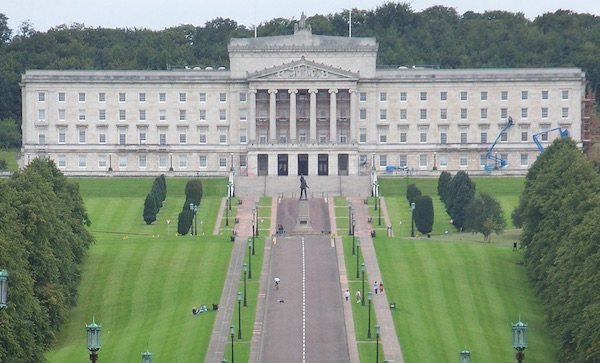
By Jim Gibney (for Irish News)
I would like to dedicate this article to Phonsie Mac Fhirleigheann who passed away suddenly over the Christmas period, leaving his family, friends and community of south Derry and Navan devastated and bewildered at such a tragic and untimely turn of events.
As a teenager Phonsie spent thirteen years in jail. He spent five years on the blanket protest for political status. During that time, he was in the company of the ten men who died on hunger strike and was a friend of first cousins Francis Hughes and Tom McElwee, who were from his area and who died on the hunger strike in May and August 1981, respectively. These were gruelling times. He joined the IRA as a teenager and when released from prison he joined Sinn Fein.
I met Phonsie in prison. He had a rare quality. In his presence, whatever was irking you he calmed you down with his smile and gentle manner. With his witty sense of humour, he made life in jail that much easier to manage.
Phonsie had personal integrity. You knew where you stood with him. He could be and was trusted and tried many times over and in his unassuming way he made family life better and he did the same with community life.
You cannot ask for much more from a person than that they would do what they could for family and community.
Family and community are the basis of society, and integrity and trust are the bonding which holds society together.
Integrity and trust are guiding principles and when applied they can see us through the challenges that life and indeed politics throw at us.
It is worth remembering this as republicans decide what to do with the absence of both in the current crisis at the assembly caused by the DUP.
The pre-Christmas crisis is now a new year crisis and could quickly become an institutional crisis with all that entails if the DUP fail to play their part in restoring the much-damaged public confidence in politics and DUP politicians.
Corruption in public life on this island and in Britain has undermined the public’s trust in most but not all politicians.
Republicans could only watch and comment from the opposition benches in the Dail and Seanad on the successive scandals that were symbolised by the ‘brown envelope’ culture in southern politics. And it was important to do so. To provide for people an alternative viewpoint opposed to corruption.
But in the north the situation is dramatically different. Sinn Fein has real power and sits in a government with the DUP and there are serious questions over the DUP’s integrity and its commitment to power sharing and partnership government. And serious questions over its awareness about dubious practices in the rolling out of the controversial heating scheme.
That is bad enough but it comes at a time when the DUP are being particularly offensive towards the Irish language.
With the future of the institutions in doubt minister Paul Givan’s announced his decision to end a 50,000 pound per year Liofa bursary scheme to help disadvantaged people attend the Gaeltacht. He did this in the context of defending First Minister Arlene Foster over her handling of the heating scheme which could cost taxpayers 400m pounds. It was a calculated affront to Irish culture and to those speaking and learning Irish, nationalists and unionists, and further undermines the viability of the institutions.
Given the attitude of the DUP to the crisis there appears to be a momentum building towards a collapse of the institutions.
Although there is still a few weeks left before Sinn Fein’s motion to the north’s assembly is debated there is, in theory, still time for the DUP to reconsider its position.
There is a way to avoid this outcome. It is a reasonable position and one which wider society supports: Arlene Foster should stand aside and allow for a full, robust independent investigation which is time-framed, with an inbuilt preliminary report, and is carried out by a judicial figure appointed by the Attorney General.
Serious damage is being done to the integrity of politics and action is urgently needed to restore public confidence and trust in the north’s political system.
![[Irish Republican News]](https://republican-news.org/graphics/title_gifs/rn.gif)
![[Irish Republican News]](https://republican-news.org/graphics/title_gifs/harp.gif)

